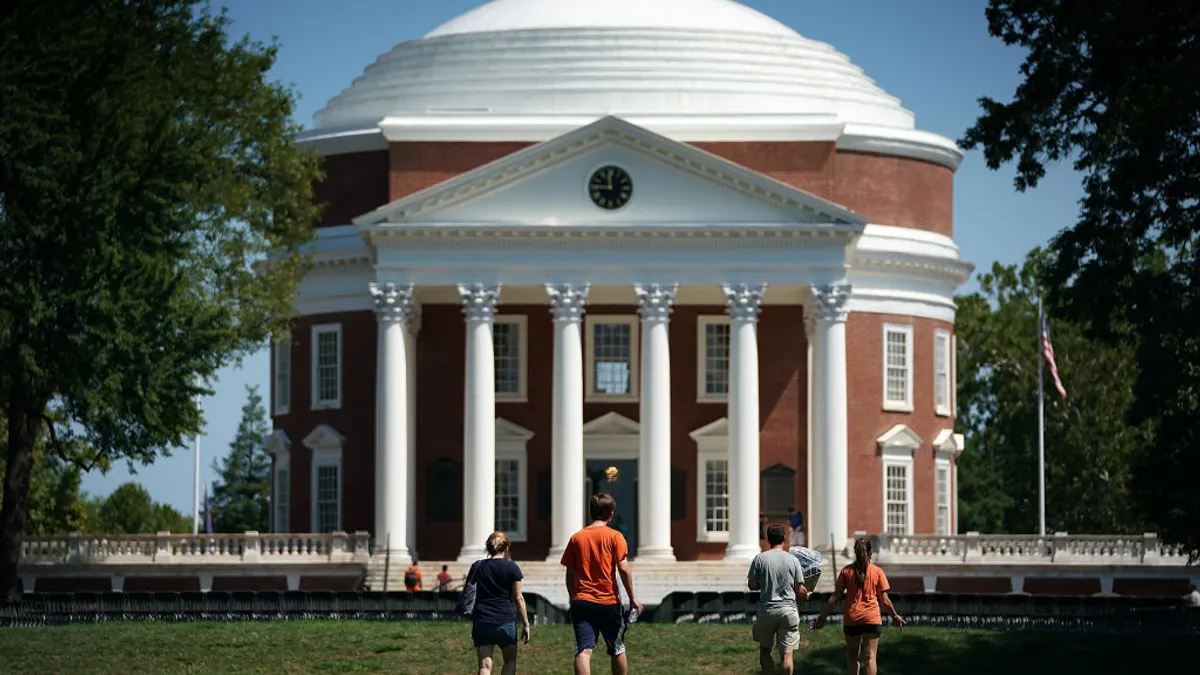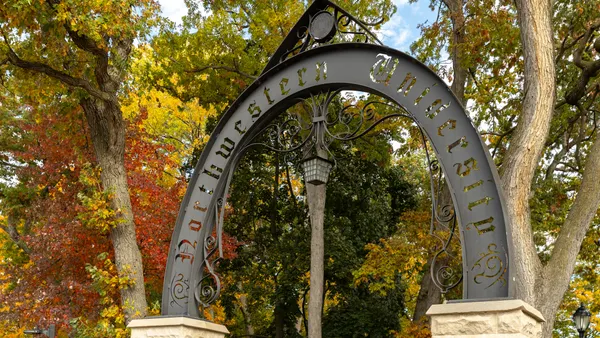Dive Brief:
- New College of Florida has publicly volunteered to be the first institution to adopt the Trump administration’s higher education compact.
- The institution — which has undergone a right-wing transformation since 2023 at the direction of Republican Gov. Ron DeSantis — said in a news release Monday that it would “happily be the first” to formally embrace President Donald Trump’s vision for higher education.
- Most universities directly offered the compact have rejected the sweeping proposal, which promises priority for federal grants in return for implementing far-reaching policies favored by the administration.
Dive Insight:
At the beginning of October, Trump administration officials outlined a potential deal that it first brought to nine major research universities.
In return for special consideration in research and other federal funding, the universities were asked to implement a wide-ranging slate of policies. Those included a five-year tuition freeze, a standardized test requirement for applicants, an institutional position of neutrality on political and social events, and a commitment to potentially dissolve units deemed anti-conservative.
Seven of the universities rejected the compact outright. Two others, Vanderbilt University and the University of Texas at Austin, have yet to formally accept or reject the deal. In October, Trump appeared to open the compact up to all colleges via a social post. At least three other institutions have declined the compact since.
Many of the rejecting institutions cited concerns about academic freedom and independence. But NCF said Monday that it has already implemented policies reflecting many of the principles in the compact. The college has nixed diversity, equity and inclusion efforts, dismantled its gender studies department, and eliminated "discrimination in admissions."
Before 2023, NCF had a reputation as a LGBTQ+ friendly campus and one of the most progressive institutions in the state. But that year, DeSantis appointed a new slate of trustees at the liberal arts college, kicking off a turbulent transformation into a conservative model of public education.
The governor publicly advocated for a vision for NCF as a “Hillsdale of the South,” referring to Hillsdale College in Michigan, a conservative Christian institution.
The American Association of University Professors’ governing council voted unanimously in 2024 to sanction NCF over noncompliance with the faculty group’s standards for shared governance.
The AAUP called NCF’s changes an “unprecedented politically motivated takeover” citing findings from its 2023 report on political interference in higher ed in Florida. At NCF that included course changes, tenure decisions and faculty dismissals following DeSantis remaking of NCF’s board, according to the report.
“The board of trustees and administration thoroughly restructured the college's academic offerings without meaningful faculty involvement and denied academic due process to multiple faculty members during their tenure applications and renewals,” the AAUP said in announcing the censure.
More recently, Republican state lawmakers and DeSantis have reportedly eyed an expansion of NCF, which could include diverting other public institutions’ resources to NCF’s control.
For its part, the college said Monday that it has reformed around principles such as merit and free thought.
“We have no affirmative action or DEI, and we have been building a campus where open dialogue and the marketplace of ideas are at the forefront of everything we do,” said NCF President Richard Corcoran, formerly the Republican speaker for the Florida House and the education commissioner under DeSantis.
Initially, the Trump administration offered the compact to research powerhouses that take on large numbers of federal contracts, such as the Massachusetts Institute of Technology, University of Southern California and UT-Austin.
The smaller NCF only reported $381,509 in federal grants in fiscal 2024.













